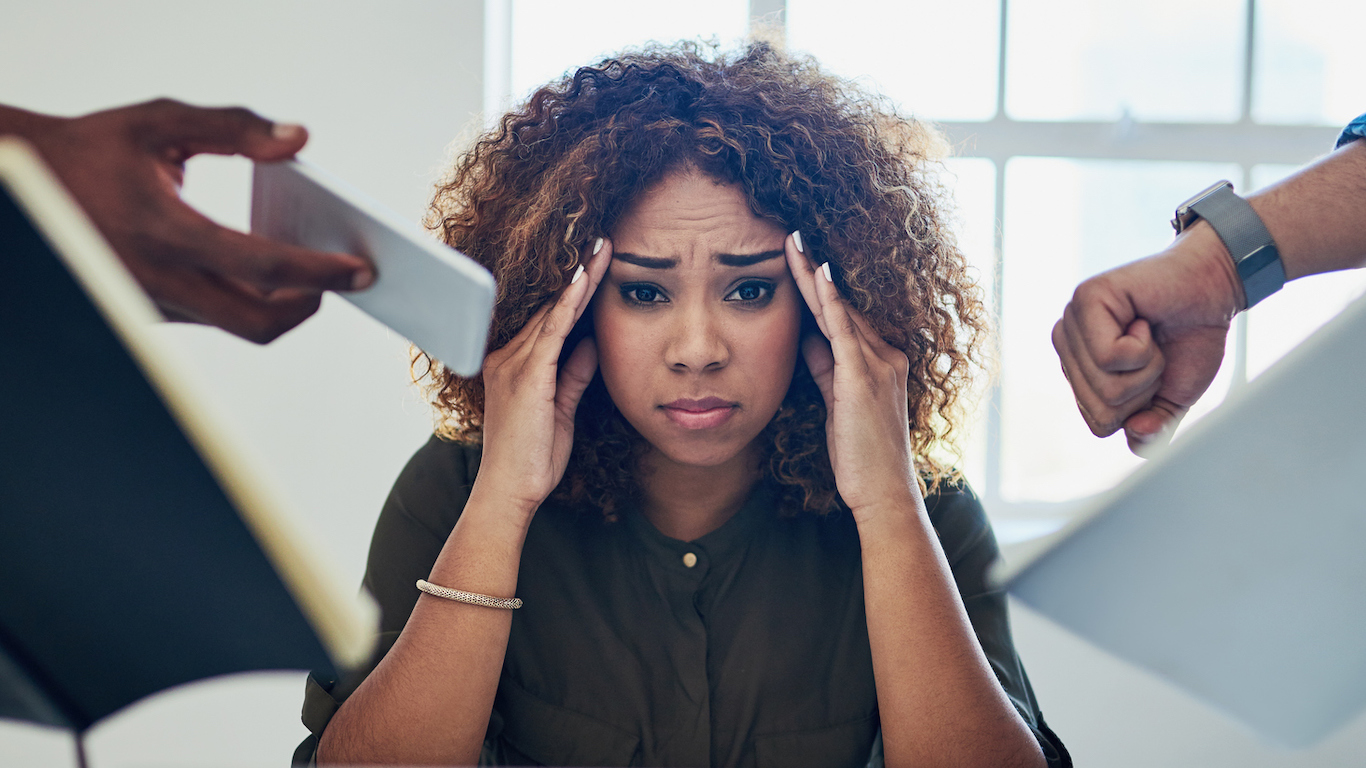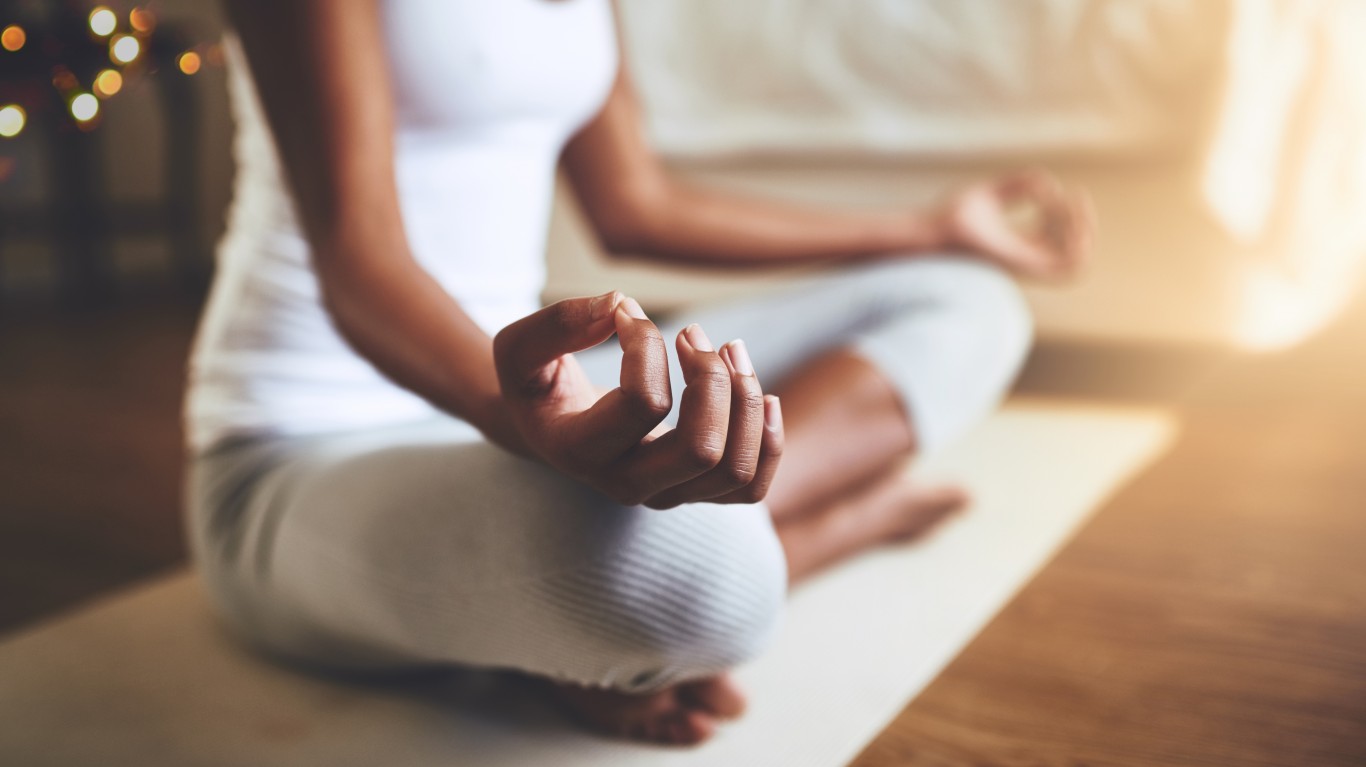
The season of sipping eggnog, indulging in desserts, and relaxing with family is over. Reality has settled in again, but coming to terms with it after weeks of fun is easier said than done. Some people have a hard time returning to the old routine and feel less energized and more stressed.
Post-holiday depression is sometimes defined as a general feeling of sadness and hatred of all things work-related soon after a long holiday. Symptoms include stress, anxiety, mood swings, inability to focus, and fatigue.
Time off from work often serves as a much needed break, alleviating work-related stress. But for many people the relief is short-term. A survey of workers in the UK found that after only one week back on the job, 76% of employees felt as stressed as before they went on vacation.
The likelihood of experiencing post-holiday blues varies widely depending on such factors as job satisfaction, the particular holiday being celebrated, and travel problems. Whether you socialize in general and whether you actually relax while off work have also been tied to post-holiday stress.
Making the transition from relaxing to working as smooth as possible is not impossible, but it takes some effort. Thankfully, there are a few easy tricks you can try to beat the post-holiday blues.
24/7 Wall St. reviewed dozens of studies and information posted by independent organizations such as the American Psychological Association to identify 17 tricks to offset post-holiday stress and fatigue.
Click here to see 17 ways to deal with stress and fatigue after the holidays.

1. Declutter your home and office
Clutter has been associated with a range of unhealthy behaviors. Not only does clutter lead to unhealthy food choices, which can play a big role in one’s mood, it is also linked to problems with decision making and executive function. It distracts by focusing one’s attention on something else and provides too many stimuli, making it difficult to relax. Research has shown that people can get emotionally attached to objects just by holding them too often or keeping them around for a long time, resulting in clutter.
[in-text-ad]

2. Drink a lot of water
Remembering to drink water not only when you’re thirsty is more important than you think. Even mild dehydration can make people irritated, tired, and unable to focus.
Keep in mind that by the time you’re thirsty, you are already dehydrated. After all, 60% of the body is water. How much water people need a day depends on their overall health and activity level. The general recommendation by the National Academies of Sciences, Engineering, and Medicine is 12 cups of fluids, some of which can come from beverages and food, for women, and 16 for men.

3. Volunteer
In general, people who volunteer feel happier than those who don’t. One reason why is the many social interactions that come with it. Volunteers also feel more productive, like their job (and employer) more, develop people skills, and use less sick time. A study showed, however, that the trick is volunteering for the right reasons. People who volunteered to help others lived longer than volunteers with other motivations.

4. Take up running
Research has found that running on a regular basis – for at least six weeks – may help reduce stress. Exercise helps re-organize the brain so anxiety is less likely to interfere with normal brain function. Running and other forms of aerobic exercise can decrease tension, boost mood, and improve sleep and self-esteem. Even five minutes of running can stimulate anti-anxiety effects, according to the Anxiety and Depression Association of America.
[in-text-ad-2]

5. See a comedy show
Or do anything else that will make you laugh. Relieving stress is one short-term effect of laughter. It has also been shown to release tension as it stimulates blood circulation and helps with muscle relaxation. Laughing out loud increases oxygen intake, stimulating the heart and lungs, and increasing endorphins, or happiness hormones, released by the brain.

6. Practice mindfulness
This stress management method promotes non-judgmental attitude, self awareness, and acceptance. Practicing mindfulness has been used as a powerful tool to improve mood. There is evidence that mindfulness training can be an effective treatment of mood disorders. The practice can lead to “changes in patients’ brains, improving connectivity among some brain areas and changing tissue density in key regions,” according to the American Psychological Association.
[in-text-ad]

7. Smell citrus fruits
There are large and small ways of dealing with stress. Some methods are as simple as a smell. Research has found that citrus fragrance may help restore homeostatic balance. The smell comforts through stimulation of the sensory system. In one test, when people suffering from depression were treated with citrus fragrance, it proved to be more effective than antidepressants.

8. Soak up some sunshine
Lack of Vitamin D, also called “the sunshine vitamin,” has been linked to depression. Vitamin D-deficiency has been found to be common in patients suffering from anxiety and depression. Because the body makes its own VItamin D after the skin has been exposed to sunlight, getting a little sunshine is one easy way to obtain this important vitamin. You can also take supplements or eat foods that provide Vitamin D, such as fatty fish, egg yolks, and some fortified foods like milk.

9. Look at old photos
Some research has shown that nostalgia increases self-esteem. Reliving past, but happy, experiences boosts positive self-regard. Even though nostalgia does have a sad side, evoking bittersweet emotions, the sense of continuity and meaning in one’s life is often the stronger emotion. That’s why nostalgia has been shown to offset loneliness, boredom and anxiety.
[in-text-ad-2]

10. Book a massage appointment
Massages lower levels of cortisol, also known as “the stress hormone,” even though they return to initial values later. A study on massage therapy’s effects on nurses in intensive care units found it helped reduce stress and improved mental health. In addition to lowering cortisol levels, massages may cause changes in electroencephalogram (EEG) activity and in the “rest and digest” nervous system.

11. Do a few quick exercises
Exercise is often recommended by doctors as a stress management technique. Cognitive performance begins to improve after just a single bout of moderate exercise. Physical activity has been linked to higher levels of positive emotions and mood improvement. Exercise has also been used as a promising behavioral intervention to treat depression. In addition, exercise has been found to possibly protect against stress-induced cell aging.
[in-text-ad]

12. Go on a social media hiatus
Work can be a major stress contributor, and related levels of depression and anxiety increased by 74% between 2012 and 2014. Social media can further increase stress levels by heightening awareness of stressful events in others’ lives, according to a Pew Research Center survey of 1,800 people. Women using social media report being more stressed than men.

13. Do yoga
People who did yoga for 12 weeks reported greater improvement in mood and greater decreases in anxiety than people who only walked, according to a study published in the Journal of Alternative and Complementary Medicine. Practicing yoga as a way to relieve stress helps people overcome chronic illnesses associated with stress and leads to better quality of life.

14. Plan your next big adventure
Just the anticipation of going on a vacation boosts a person’s mood. People going on a trip reported a higher degree of pre-trip happiness compared to non-vacationers, according to research published in the “Applied Research in Quality of Life” journal. A study shows that people feel more gratitude for things they do, including a trip to a new place, than for things they own.
[in-text-ad-2]

15. Listen to happy music
This may be the most immediate way to feel better. Research has shown that listening to positive music may be an effective way to improve happiness, especially if the reason for playing upbeat rhythms is to become happier.

16. Eat fatty foods
Research over the years has linked omega-3 fatty acids deficiency to depression. How exactly the two are connected is not certain. One theory is that omega-3s can travel through the brain cell membrane and connect to particles inside the brain that regulate mood. A 2015 study found that omega-3s have preventive benefits on mood and anxiety disorders, partly due to their anti-inflammatory properties. The fatty acids are found in seafood, fish oil, avocados, walnuts, leafy greens, and flaxseed.
[in-text-ad]

17. Meditate
The number of American adults who use meditation as a coping mechanism and to improve psychological balance at least once over the course of a year tripled from 4.1% to 14.2% between 2012 and 2017. More children meditate as well, according to a National Health Interview Survey. Research shows that meditation can help reduce blood pressure and anxiety, and help regulate circadian rhythms.
Travel Cards Are Getting Too Good To Ignore (sponsored)
Credit card companies are pulling out all the stops, with the issuers are offering insane travel rewards and perks.
We’re talking huge sign-up bonuses, points on every purchase, and benefits like lounge access, travel credits, and free hotel nights. For travelers, these rewards can add up to thousands of dollars in flights, upgrades, and luxury experiences every year.
It’s like getting paid to travel — and it’s available to qualified borrowers who know where to look.
We’ve rounded up some of the best travel credit cards on the market. Click here to see the list. Don’t miss these offers — they won’t be this good forever.
Thank you for reading! Have some feedback for us?
Contact the 24/7 Wall St. editorial team.
 24/7 Wall St.
24/7 Wall St. 24/7 Wall St.
24/7 Wall St.


